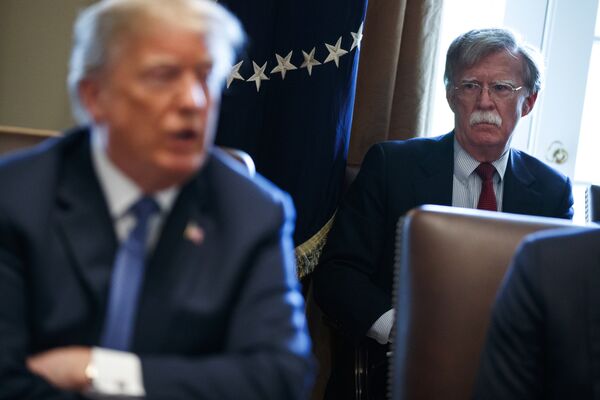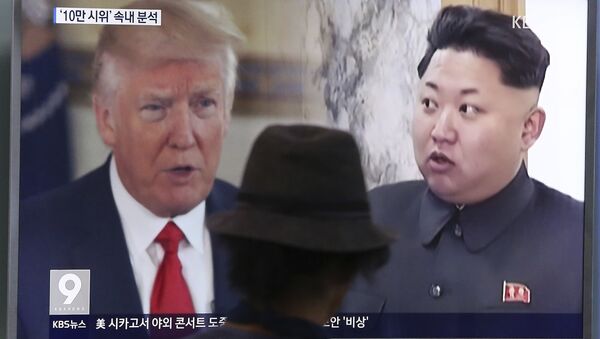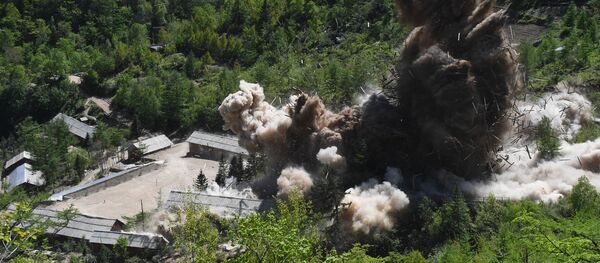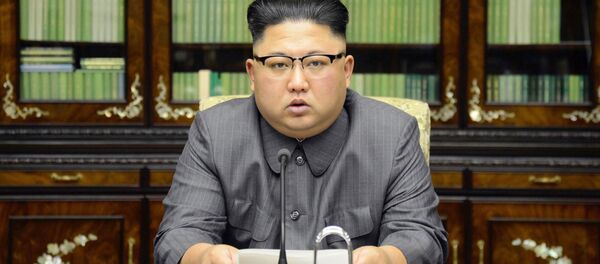Sputnik: What was your reaction to Mr. Trump's decision? Did it surprise you?
David Schultz: I was not surprised and never actually thought that the summit was going to take place. There's a couple of reasons why.
The first is I think there's a rule of diplomacy that at that level you never hold a summit until you know exactly what's going to happen. There's a lot of groundwork that has to be laid before a summit occurs in terms of agreements, and really the summit itself is more ceremonial.
A second point is the fact that at least on the part of North Korea, they decided it was probably risky to do this, because the United States' objective, if they had one, would be to say that North Korea has to give up its nuclear weapons. I am not sure, in light of the United States cancelling its nuclear agreement with Iran, that North Korea wanted to take that chance, because without a nuclear weapon, it looks like North Korea would have almost no bargaining clout with the United States.
So I think there were lots of reasons for [the summit not going ahead]. And I would have been completely surprised if [it] actually occurred.
Sputnik: Do you think it's a surprise that Mr. Trump was the first to cancel? It seemed that North Korea also had a lot of problems, especially amid Vice President Pence's commentary and suggestion that the US would like to see a 'Libya scenario' for North Korea?
David Schultz: Yes, it was a question of who was going to blink first in terms of cancelling. And I think in many ways the risk to the United States and to Donald Trump was greater than to North Korea and Kim Jong-un. Because Trump was banking on a lot in terms of the summit producing some type of major breakthrough; he had been hyping it for several weeks.
I'm pretty convinced that the statement he made about North Korea making belligerent comments was really just a pretext for the fact that his military and his State Department people felt uncomfortable about going ahead with this summit. Therefore, the risk was too great.
I have decided to terminate the planned Summit in Singapore on June 12th. While many things can happen and a great opportunity lies ahead potentially, I believe that this is a tremendous setback for North Korea and indeed a setback for the world… pic.twitter.com/jT0GfxT0Lc
— Donald J. Trump (@realDonaldTrump) 24 мая 2018 г.
David Schultz: Anybody who's realistic would have come to the conclusion that that's not possible. But if he was going into it thinking that was going to happen, and that's why he canceled the summit at the last second, then that's a real major problem in how Trump is viewing the world, because under no scenario is it going to happen. You have build trust, you have to build relationships.
But I also think it's important to think about something else that has happened in the last few weeks: that John Bolton and Mike Pompeo have come along. Both of them are advocating more militaristic approaches, more military solutions to things.
What one has to be wondering at this point (and I'm speculating, of course) is at what point did Bolton and Pompeo say to Trump 'you're not going to get what you want through diplomacy, and instead we may have to take appropriate military action.' And if that's the reason why he canceled, that becomes a very dangerous situation.

Sputnik: Finally, there is of course the off chance that Donald Trump will go ahead with the meeting. It seems that this was a very attractive prospect for him. He wanted to be known as 'the man who made a difference', to get his face on a commemorative coin or be nominated for a Nobel. The North Korean letter to Trump post his cancelation commented on his bravery to risk what no other president before him has done. Is there any possibility that the meeting may ultimately be held, perhaps at a later date?
David Schultz: A possibility, yes. But people have mentioned the fact that his security advisers seem less supportive of wanting to move in a diplomatic direction. I think it's going to be a combination of the influence of his security staff, as well the upcoming 2018 elections in the United States; I'd have to think that those might have an influence on what Donald Trump does. So a combination of international and domestic politics will come into play in terms of affecting what the president is going to do going forward.
David Schultz is a professor of political science at Hamline University. The views and opinions expressed by Dr. Schultz are those of the contributor, and do not necessarily reflect those of Sputnik.



